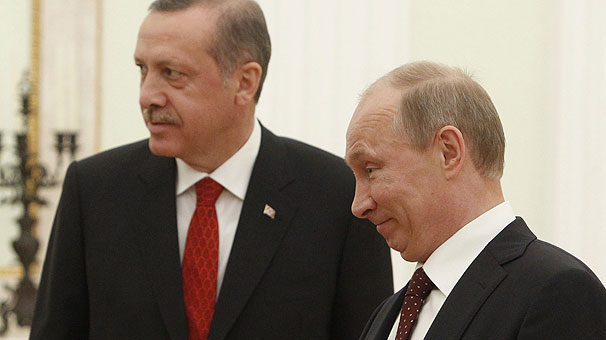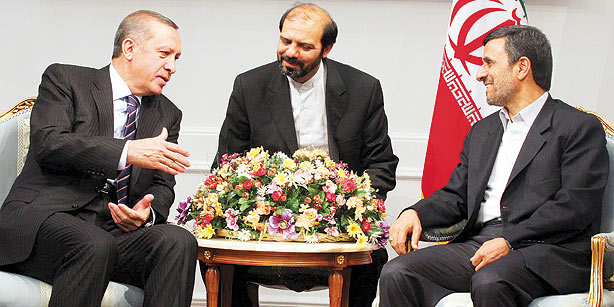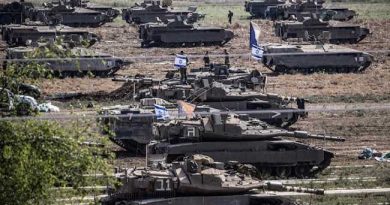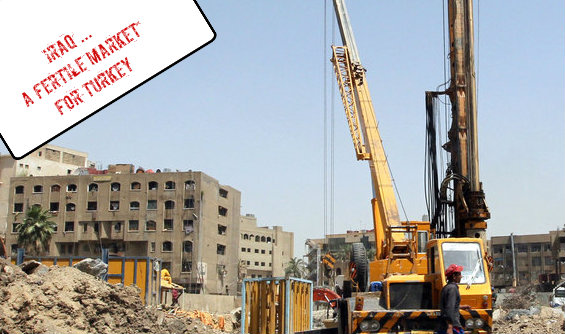Why does Turkey need to improve its problematic ties with Russia?

Turkey and Russia have had a common history of strong challenge and confrontation with each other in the region starting from the rising period of the mighty Ottoman Empire, centuries ago.
At times, Turkey (the then Ottoman Empire) managed to be superior over Russia and there were times when Russia managed to stand as a big threat for Turkey.
In time and especially after the establishment of the Republic of Turkey, these two countries took position in different camps as Turkey accepted the protection of the Western block headed by the USA, against any threats to emerge from the Eastern camp headed by Russia (USSR then which stood for United Soviet Socialist Republics).
Despite this however both countries managed to keep their relations at a reasonably acceptable level as two neighboring countries should ideally do and carried out helpful economic and cultural relations.
After the disintegration of Soviet Republics and emerging of Russia as the new second world power, this country went through unstable times at the beginning until Vladimir PUTIN came to power and started implementing his harsh and consistent policies which has eventually made him number one among most powerful men in the world.
Turkey and Russia in the meantime have faced moments of confrontation and with the positive efforts of politicians from both ends they have managed to work out most problems in a manner to satisfy both parties.
Among such conflicts, the one over Syria where the two countries have backed opposing fractions in the country’s civil war have been most apparent. In fact, two countries have even gone as far as accusing each other of prolonging the big conflict in Syria.
As the situation looks now, Turkey seems to be determined to reconsider its relations with Russia, testing a more practical approach to the region.
As for economy, the quiet satisfactory cooperation between the two countries worth billions of dollars – to cover strategic fields like nuclear energy — is certainly a good reason why they should keep their relations in a positive mode, regardless of political differences. In fact, the two countries target to increase bilateral trade to US$100 billion by 2020 from US$ 35 billion in 2012. A nuclear project to be realized by Russia in Turkey is expected to contribute by US$ 20 billion to this target. Moreover, we should not forget that dozens of Turkish contractors are doing billion dollar projects in Russia and thus the Turkish-Russian relationship appears set to continue developing. It is obvious that neither side would be willing to endanger this mutual beneficial picture.
Turkey has luckily realized that it has been almost isolated due to some wrong choices made by the current administration in the Middle East region. On top of all, the latest undesired decision taken by Cairo to downgrade diplomatic ties with Ankara, after it was angered over remarks by Erdogan in support of ousted President Mohammed Morsi, seems to have made Turkey’s situation even worse.
Iran which is the most powerful competitor to Turkey on the other hand, has made big improvement in the political arena by getting the nuclear deal concluded with superpowers. This country has not missed any opportunity to show the world it is highly capable of negotiating, establishing and maintaining relations on the diplomatic arena. Indeed, President Rouhani has recently received the deputy Russian prime minister for defense and space industry to show the warm relations between Moscow and Tehran, and stated that both countries “have shared interests and objectives in the sensitive Middle East region.”
To cut a long story short, Turkey has come to a point where Erdoğan cannot turn a blind eye to the fact that Turkey has lost much ground in the region and Russia has strengthened its position to the maximum and proved to be the number one influential and proactive player in the region to have a say, once again.
In fact, when viewed from the Russian perspective, Moscow has managed to keep its position on issues such as Iran and Syria. Obviously it is other parties that have come around to accepting what Russia has been supporting all along and Turkey is certainly one of these parties and has finally agreed to accept this reality in spite of the strong personality of the Turkish Prime Minister.
On account of above explanation, despite major differences on the Syrian issue for instance, Erdogan has felt obliged by the irresistable weight of circumstance to accept that a negotiated settlement is the only option left for Syria and extended his support to the Geneva II conference that Washington and Moscow are pushing for and which has now been set for Jan. 22.
Many players both local and on the international level hope the Turkish administration will eventually show its capability to look at concerned issues in the region from a more realistic and constructive point of view to help contribute to the conflicts prevailing in the Middle East, in specific.
28.11.2013
Editor





